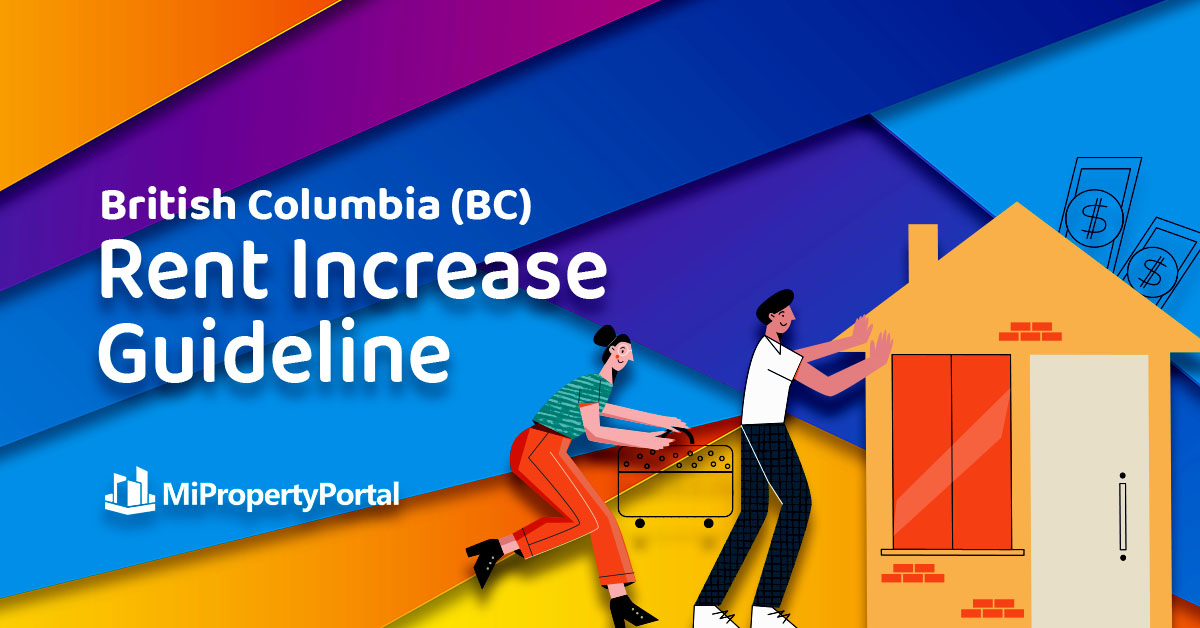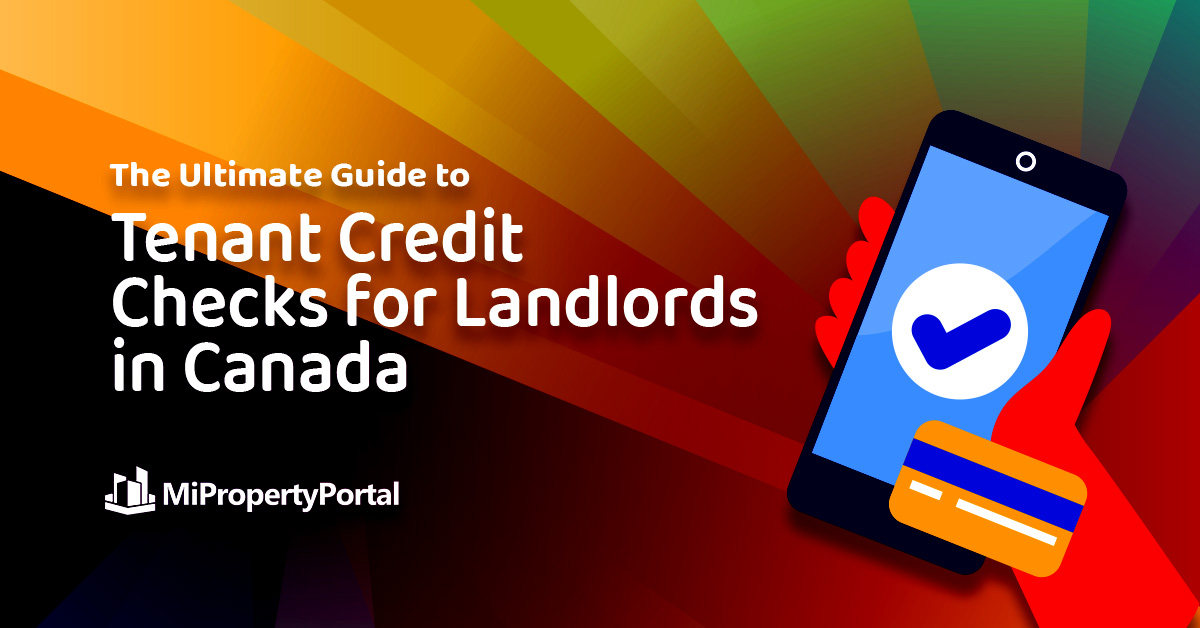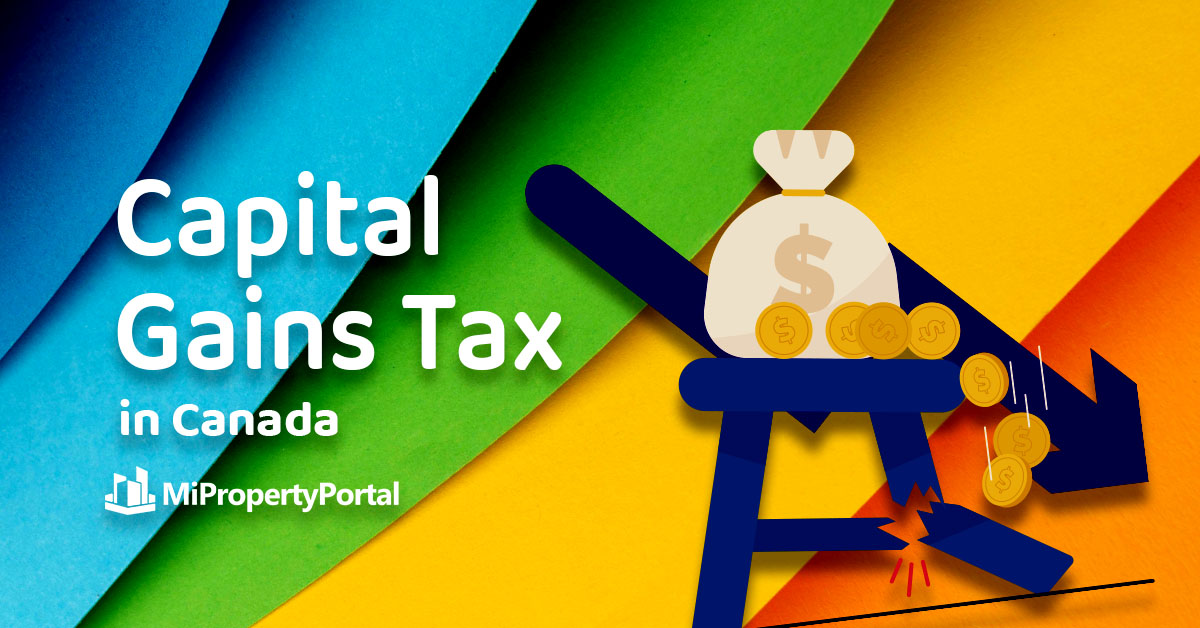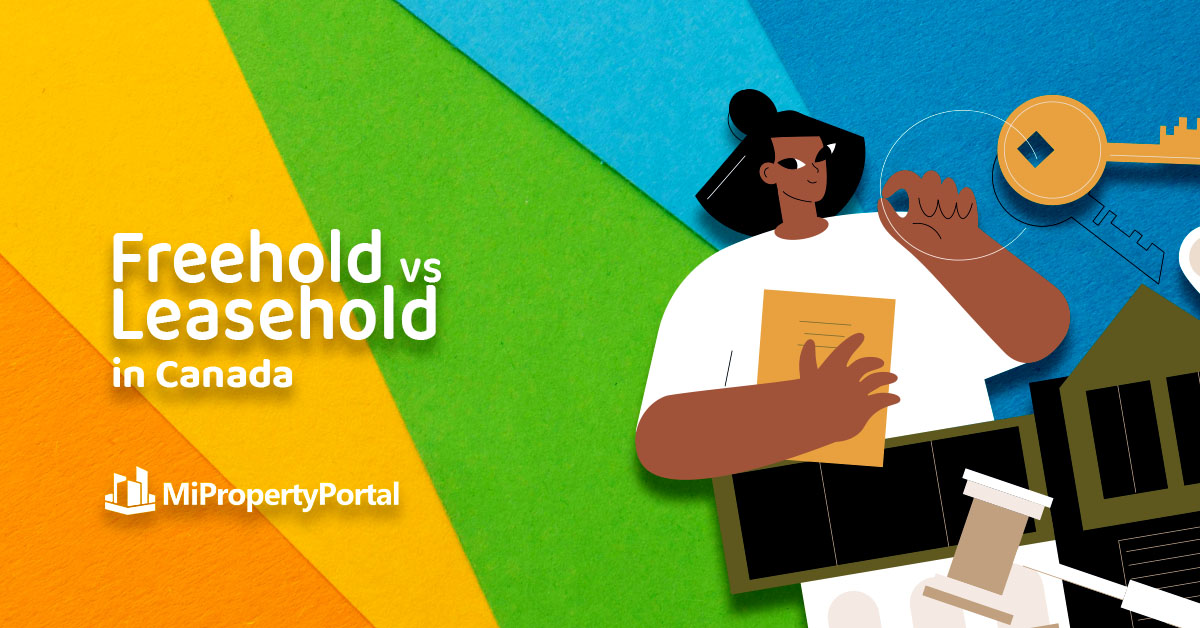In Guide
Rent Increase BC

Mi Property Portal
May 20, 2024 - 12 min read
Rent Increase BC
The housing dilemma in British Columbia has long been a source of contention, marked by exorbitant real estate prices and a critical shortage of affordable rental options. Now, renters across the province are bracing for another blow, which is significant rent hikes.
Landlords in various B.C. regions have declared their intentions to increase rents, citing rising operational expenses and the imperative of sustaining profitability.
This looming spike in rental costs has sparked intense debates, reigniting concerns over housing accessibility, tenant rights, and the delicate equilibrium between safeguarding vulnerable communities and fostering a viable rental market.
From this content, you will learn about the details of annual rent increase B.C., rent increase limits, tips for tenants, and much more. So, let’s dive in!
Understanding Rent Increase Regulations in BC for 2024
B.C. is limiting rent increases for the second consecutive year, capping them at 3.5% in 2024. This move addresses the rising burden of living expenses on landlords and renters, especially housing. Effective January 1, 2024, the new cap requires landlords to give three months’ notice and limits them to raising rent once a year.
This measure is part of B.C.’s ongoing support for renters. Since 2018, rent hikes have been tied to inflation, ditching the old practice of adding 2%. During the challenging times of the COVID-19 pandemic in 2020 and 2021, rent increases were halted to ease the financial strain on renters.
The decision has garnered praise from Spencer Chandra Herbert, Renters’ Liaison, who sees it as a crucial step in securing stable long-term rentals. Families significantly benefit from the lower 2024 hike, thanks to changes made in 2018 that linked increases to inflation, resulting in substantial savings.
In addition to rent controls, B.C. has implemented measures to protect renters since 2017, including banning “renovictions” and penalizing landlords for bad-faith evictions.
The government has allocated an extra $15.6 million to the Residential Tenancy Branch (RTB) to improve services further and reduce delays. They’ve also strengthened the RTB’s Compliance and Enforcement Unit to intervene earlier and eliminate the need for hearings.
This is enough to understand the B.C. rent increase 2024.
When Rent Can Be Increased in BC
People in B.C. are often concerned about when the rent will increase or want to know about the allowable rent increase BC 2024. If we look back to the previous year, the rent increase percentage was 2%, whereas in 2022, it was 1.5%.
The BC government published this result. If you want more information for 2023, search online by writing ” BC government rent increase 2023.”
Now, let’s come to the percentage rate in 2024. This year the percentage is more than doubled! And it is 3.5%.
Even if landlords cover utilities and additional charges within the rent, they still need to be allowed to raise the rent beyond the permitted amount, even if their expenses have increased.
So, we can understand that landlords can increase the rent percentage.

Rent Increase Limits Over the Last Five Years in BC
If we analyze the rent increase limitations in the last five years, we observe that rent will increase from 2022. But in 2021, it was 0%. Now, why was it 0%? Because that was the time when the pandemic was happening all over the world, and the world was facing a crisis. People were getting jobless at that time. When the pandemic was gone, the tax again started to increase. Let’s have a look at the last five years’ rent increase chart:
| Year | Percentage |
|---|---|
| 2023 | 2% |
| 2022 | 1.50% |
| 2021 | 0 |
| 2020 | 2.60% |
| 2019 | 2.50% |
This is the percentage for the last five years. In 2024, the rate is 3.5%, which is way higher than the previous years, the maximum rent increase B.C.
Utilities and Other Fee Increases in BC
If you asl how much can rent increase in bc? Well, it was explained above. A landlord can increase anytime. Of Course, they have to go through some rules and regulations.
Tenants must consent to any increases in utilities and additional fees, whether integrated into the rental agreement or specified separately. Before making payments, tenants must request and keep a copy of their landlord’s utility or service bill.
About the other fees, such as additional rent increase bc, landlords have specific guidelines regarding fees during a tenancy:
1. Keys
Landlords cannot charge tenants for the primary key or access device if it’s the sole means of entry. However, they may charge for extra keys or devices, provided the fee does not exceed the replacement cost and is refunded upon return.
2. Application Fees
Landlords are prohibited from charging fees for accepting, reviewing, or processing rental applications.
3. Moving Fees
Landlords can impose fees for unit moves within multi-tenanted buildings, capped at $15 or 3 percent of monthly rent, as outlined in the tenancy agreement. A move-in fee may also be applied if mandated by strata bylaws.
4. Parking and Storage Fees
Landlords can include parking and storage fees in the tenancy agreement, provided they do not exceed the annual allowable rent increase. If tenants find these fees excessive, they can seek assistance from the RTB.
Separate agreements may not have fee limits, so tenants should carefully review and understand them before signing.
5. Late Rent Fees
Landlords can levy non-refundable late rent fees, capped at $25. The tenancy agreement must explicitly state the existence of a late rent fee.
Notice of Rent Increase in BC
For notice of rent increase bc, landlords must give tenants written notice about any planned rent hikes in British Columbia. This notice must be provided at least three months before the increased rent goes into effect, and the increased amount should be specified when it will be applied.
Moreover, landlords can only raise the rent once within 12 months, and any notices about rent increases from the prior year should be ignored when determining the new rates.
Disputing Unlawful Rent Increases
Landlords are bound by specific guidelines regarding the service of notices to end tenancy. These notices typically consist of multiple pages; for them to be valid, landlords must ensure that all pages are served to the Tenant.
Tenants are entitled to receive the appropriate notice period when their tenancy ends, as stipulated by law. Each notice to end tenancy form specifies a date by which the Tenant must vacate the rental unit, known as the effective date of the notice.
If a tenant wishes to dispute an eviction notice from their landlord, they should take specific steps. This includes applying for dispute resolution and paying the necessary filing fee, utilizing online dispute calculators to confirm timelines or rent increase limits, gathering evidence, and monitoring their application status online.
If a tenant submits a dispute resolution application before the deadline, the notice to end tenancy is temporarily put on hold. During the dispute resolution hearing, the landlord must provide evidence of a lawful eviction.
The arbitrator will then make a binding decision that both parties must adhere to.
All notices must be in writing, and all involved parties must retain copies for their records.
Now, there are some steps to take before initiating a Dispute.
- Ensure the eviction notice was served correctly, using the appropriate form and for valid reasons, and check if the TenantTenant is still within the dispute timeline.
- If the TenantTenant wishes to contest the eviction and remain in the rental unit, they must apply for dispute resolution to have the notice cancelled.
Ignoring the notice is not advisable, even if the TenantTenant believes the eviction lacks merit.
3. If the TenantTenant does not challenge the eviction notice or loses in a dispute resolution hearing, the Residential Tenancy Branch (RTB) may issue an Order of Possession to the landlord.
4. To enforce the eviction and remove an overholding tenant, the landlord must follow these steps:
- Provide the Tenant with a duplicate of the Possession Order.
- Wait for the two-day review period to expire. If the tenant files for a review during this period, the Order of Possession is put on hold until the review outcome.
- Obtained a Writ of Possession from the B.C. Supreme Court using the Order of Possession.
- Utilize the Writ of Possession to hire a court-approved bailiff to evict the Tenant and remove their belongings.
5. Any modifications or additions to the tenancy agreement must be documented in writing and initiated by both the landlord and tenant to be enforceable.
Unwritten changes or modifications lacking both parties’ initials are not legally binding.
Rent Increases During Sublets
When a tenant sublets their rental unit to another tenant, they effectively take on the role of a landlord. For instance, if Tenant A subleases their unit to Tenant B, Tenant A assumes the landlord position for Tenant B.
In such cases, if Tenant A receives a notice of a rent increase from the original landlord, they have the authority to pass it on to Tenant B, provided they give proper notice. This means TenantTenant A must inform Tenant B about the rent hike within the required timeframe specified by law or the original lease agreement.
As the intermediary landlord, Tenant A mirrors the responsibilities and rights typically associated with being a landlord.
Tips for Tenants
Here are some tips for BC tenancy rent increase:
Understand Your Rights and Responsibilities: Take the time to familiarize yourself with the Residential Tenancy Act of British Columbia. Knowing your rights as a tenant will empower you to advocate for yourself effectively.
Read and Understand Your Lease Agreement: Before signing a lease, carefully read and understand all the terms and conditions. Pay attention to clauses related to rent increases, maintenance responsibilities, and termination conditions.
Keep Records: Maintain records of all communication with your landlord, including emails, letters, and notices. This documentation can be crucial in case of disputes or disagreements.
Report Maintenance Issues Promptly: If you encounter any maintenance issues in your rental unit, report them to your landlord or property manager as soon as possible. They are generally responsible for ensuring the property is habitable and safe.
Pay Rent on Time: Always pay your rent on time to avoid late fees or potential eviction proceedings. If you anticipate difficulty paying rent, contact your landlord to explore possible solutions.
Respect Your Neighbors: Be considerate of your neighbors and follow any rules or guidelines established for the building or community.
Know the Proper Procedure for Disputes: If you encounter any issues with your landlord that you cannot resolve amicably, familiarize yourself with the dispute resolution process provided by the Residential Tenancy Branch (RTB).
Stay Informed About Rent Increases: Understand the rules and regulations regarding rent increases in British Columbia. Landlords must provide proper notice and adhere to specific guidelines when raising rent.
Keep Your Contact Information Updated: Ensure your landlord has your current contact information so they can reach you if needed.
Consider Renter’s Insurance: While not mandatory, renter’s insurance can provide valuable protection for your personal belongings in case of theft, damage, or other unforeseen events.
By following these tips, you can navigate the rental process more effectively and ensure a positive tenancy experience in British Columbia.
Introducing MiPropertyPortal
Property Management Software With Built-in Rental Application Form
MIPorperty Portal (MIPP) is an all-in-one property management software solution for property managers, real estate investors and landlords in Canada. It has built-in rental application forms of all the provinces, which can be filled out with just a few clicks, saving you precious time and energy.
MIPP comes with numerous features:
- Tenant Screening
- Lead Management
- Online Rent Application (Free)
- Tenant Background Check and Credit Check
- Property Management Accounting and Reporting
- Assistance with compliance requirements
- Maintenance Tracking
- Online Rent Collection
- Vendor & Supplier Management
- Property Inspection
- Automated Form
- Storage & management of communications
- Automated Lease Creation
- And many more…
Why Should You Choose MIPP?
MIPropertyPortal can take your property management business to the next level. It will automate much of your property management business while you focus on generating revenue.
Get a free property management demo, or contact us to explore more.
The software is also available on the App Store or Google Play to manage your property on the go.
Conclusion
That is all about Rent increase Bc. Navigating the landscape of rent increases and tenant rights in British Columbia requires understanding the regulations, staying informed, and advocating for oneself.
Frequently Asked Questions (FAQs) About Rent Increase BC
Landlords can increase rent per regulations such as proper notice, allowable amounts for existing tenancies, and lease provisions for fixed terms. Violations may allow tenant disputes but are generally not grounds to sue.
Reporting or disputing rent increases does not impact credit scores. However, unpaid rent or eviction filings from unresolved disputes can negatively affect credit if not appropriately handled.
Landlords in Canada can check a tenant's credit score as part of the rental application process. A low score may result in the rejection of the application. However, landlords must follow provincial/territorial laws that may have specific guidelines for rental practices and credit checks.
Tenants can refuse rent increases by responding in writing by the deadline, opposing the landlord's application to the rental authority with evidence, and abiding by the authority's ruling on the increased amount.
Yes, in many jurisdictions, including Quebec, you can typically send a rent increase notice via email, but ensure compliance with local laws and regulations regarding delivering such notices.
If you can't afford a rent increase, consider negotiating with your landlord, seeking financial assistance or subsidies, finding a roommate to share costs, or exploring alternative housing options within your budget.
To calculate your rent increase, use the formula provided in your lease agreement or follow local regulations. Typically, it involves multiplying the current rent by the percentage increase specified in the agreement or determined by the landlord.


